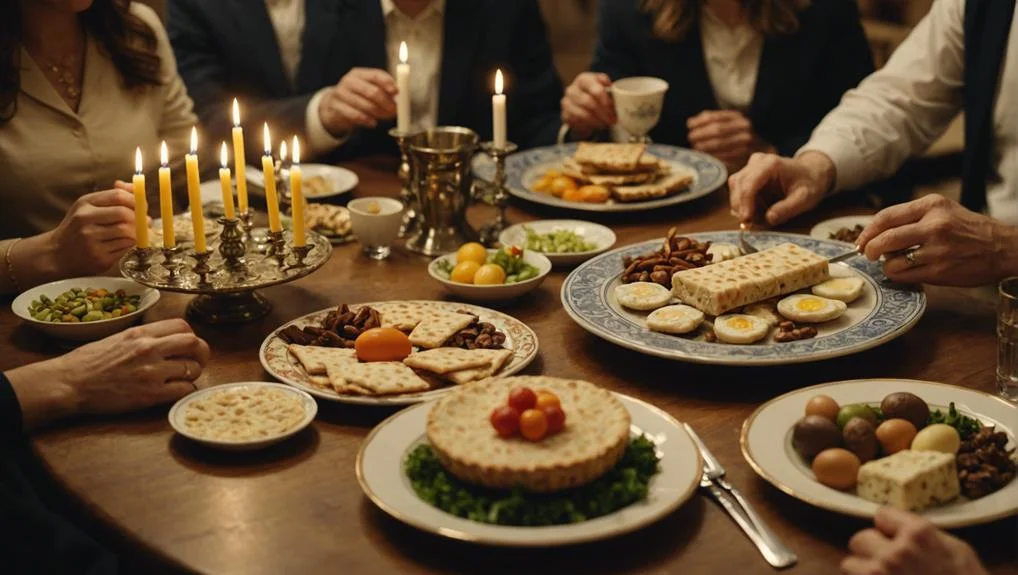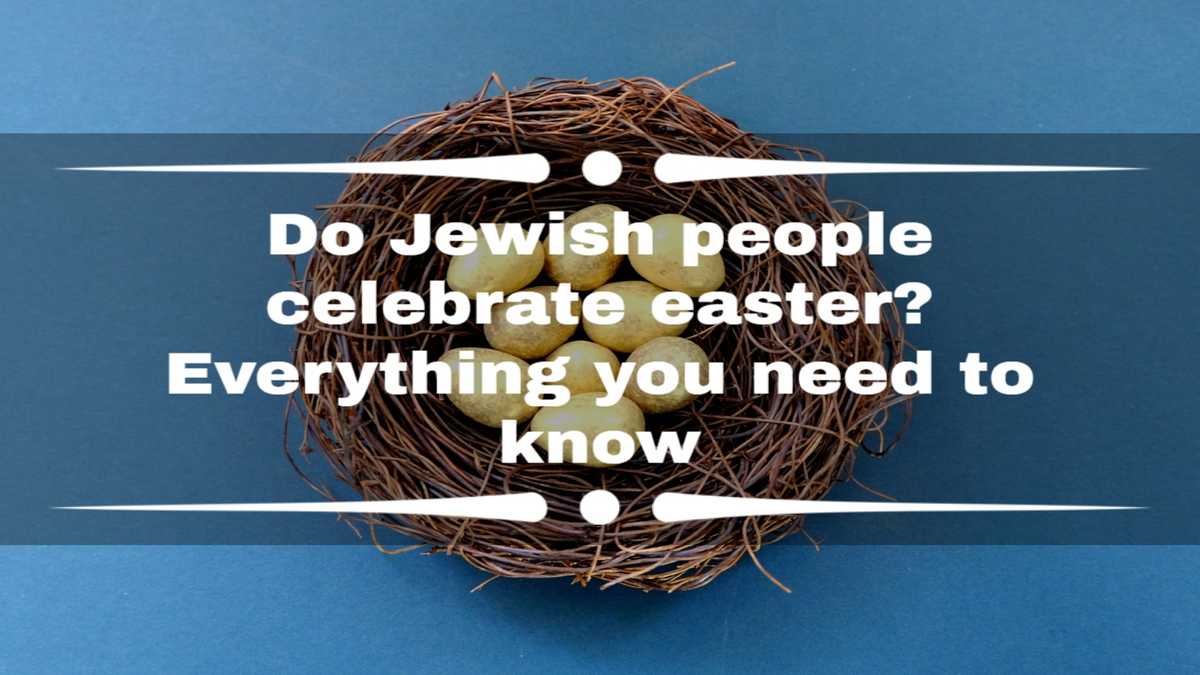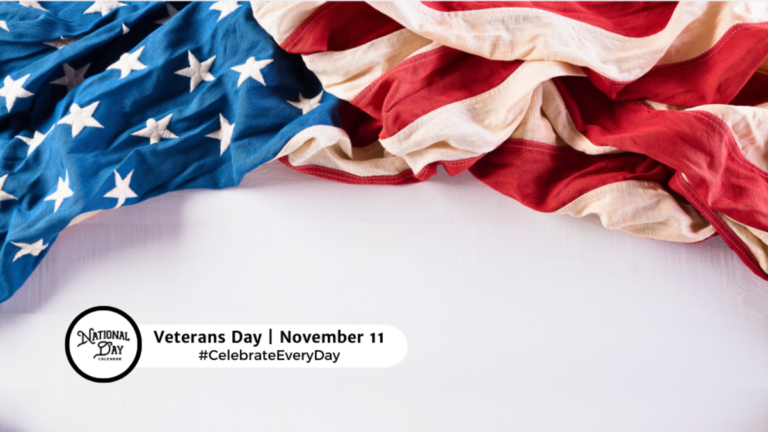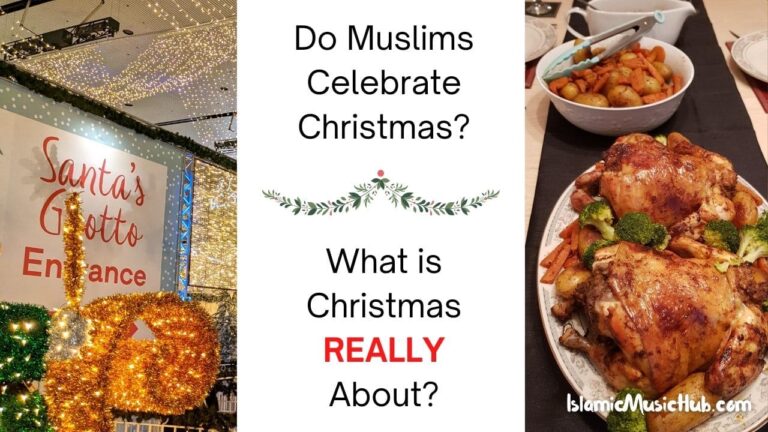Religious holidays are so blessed with cultural and religious meanings. Understanding its context is always important. Easter is one of the most important holidays for Christians; it celebrates the resurrection of Jesus Christ from the dead, which is so prominently featured in Christian beliefs. However, one often gets the question: “Do Jewish people celebrate Easter?” The short answer would be no, but it’s all about a long history of religious practices, belief systems, and quite different traditions between Judaism and Christianity.
Understanding Easter and its Specificity in Christianity
Before considering why the Jews don’t celebrate Easter, it is important to clarify what the day actually is. Christians mark the final day of Holy week as Easter, which begins with palm sunday and culminates in good Friday, when Jesus was crucified, and concludes on Easter Sunday.
Thus, Easter celebrations indicate the highest testimony to the divinity of Jesus, who vowed to promise eternal life to all the devotees. However, in return for this miraculous occurrence, these festivities also remind Christians to contemplate upon themes such as sacrifice, renewal, and hope.
Many of the old Easter customs, such as going to church and attending processions, are also full of religious significance. Even Easter eggs may have their own primitive mode of expression in respect to new life or rebirth-a theme that indeed fits into the hopeful resurrection story.

Jewish Beliefs and the Role of Jesus in Judaism
Do Jewish people celebrate Easter? Jewish faith does not recognize Jesus as the Messiah nor any god. According to Judaism, the awaited Messiah is still there. This is just a future figure who is going to bring redemption to the Jewish people, restoring peace and justice in the world.
This fundamental theological divergence forms one of the significant reasons why Jewish people cannot celebrate Easter. Judaism and Christianity are two religions with historical roots, sharing common texts, such as the Hebrew Bible or Old Testament; however, they significantly diverged in their beliefs of God, salvation, and how Jesus played his part in the process.
For the Jews, Christ is a historical figure-possibly a teacher or prophet, but not the Son of God or the Messiah. Followers of Judaism do not observe Easter because it is based upon the Christian belief in Jesus’ resurrection.
The Jewish Feast of Passover: The Historical Connection to Easter
Of course, the Jews do not celebrate Easter, but there’s another very important festival within the Jewish calendar which falls approximately at the same time: Passover or Pesach, as it is written in Hebrew. It commemorates the Israelites’ liberation from slavery during their stay in Egypt, as described within the Book of Exodus.
The Last Supper, when Jesus shared a final meal with his disciples before his crucifixion as recorded in the Christian New Testament, was actually a Passover meal, although once again, it celebrates two very different events and has two distinct meanings.
What is Passover?
It is a seven or eight-day holiday, depending on what tradition of Judaism you are referring to, and is in commemoration of the Exodus story event, told in the book of the Bible, where Moses leads the Israelites out of Egypt and takes them to freedom from slavery of Pharaoh.
The most important observance of Passover is the Seder meal, which traditionally is taken on the first (and in some communities, the second) evening of the festival. It is a time for Jewish families to spend time together thinking about their heritage and celebrating their freedom.

The Common Traditions of Easter and Passover
The coincidence between Passover and Easter creates a much deeper link between the two holidays.
During Passover, meaning that the early Easter celebrations fell on the first Sunday after the Jewish celebration occurred.
Passover centers upon the physical and spiritual liberation of the Jewish people, while Easter centers on spiritual resurrection for Jesus Christ for the salvation of mankind.
Easter vs. Passover: Contrast

Easter and Passover do share a historical context, Here is a brief comparison:
Spiritual Significance
Easter: For the resurrection of Jesus Christ as well as new life, forgiveness of sins, and a promise of eternal salvation for Christians.
Customs and Rites
Easter embraces church services, feast, and customs like Easter eggs and the Easter bunny with an emphasis on new life and rejuvenation.
Passover: The primary observance is the Seder meal, a meal which contains reading from the Haggadah — a text that retells the Exodus story, eating symbolic foods, and retelling the story of liberation.
Dates and Calendar
Easter: The first Sunday after the first full moon following the vernal equinox according to the Christian liturgical calendar.
Passover: On the 15th day of the Hebrew month Nisan according to the Jewish lunar calendar.
Why Don’t Jewish People Celebrate Easter?

The reason is primarily based on the distinctive religious beliefs that distinguish Judaism from Christianity. As Christians view Jesus as the Messiah, a cornerstone of their belief system, Jews do not. Thus, any holiday that commemorates his resurrection has no particular purpose in Judaism.
Since salvation theology, atonement doctrine, and the person and work of the Messiah are all different, Easter celebrations-independence from the resurrection of Jesus as a path to eternal life-cannot be suitable or compatible with any Jewish theology. After all, the Jewish faith is identified today in religious practice and its festivals, which find their roots and basis in Passover, in celebration of high points in the historical and doctrinal development of Judaism.
Interfaith Dialogue and Respecting Differences
In a religionally pluralistic world today, learning about the uniqueness of each faith becomes crucial in fostering mutual respect. Other than no Jew observing Easter, many Jewish families have friends and neighbors who do. Many jewish people would include non-jewish families in their passover celebrations. These interfaith experiences open up opportunities for knowledge, respect, and celebrating differences.
Understanding differences between Jewish traditions and approaches toward holidays such as Easter, and how there is a sharp differentiation of approaches when it comes to Christian traditions toward holidays such as Passover helps to get as well as value the richness of both religions together with its values.



















